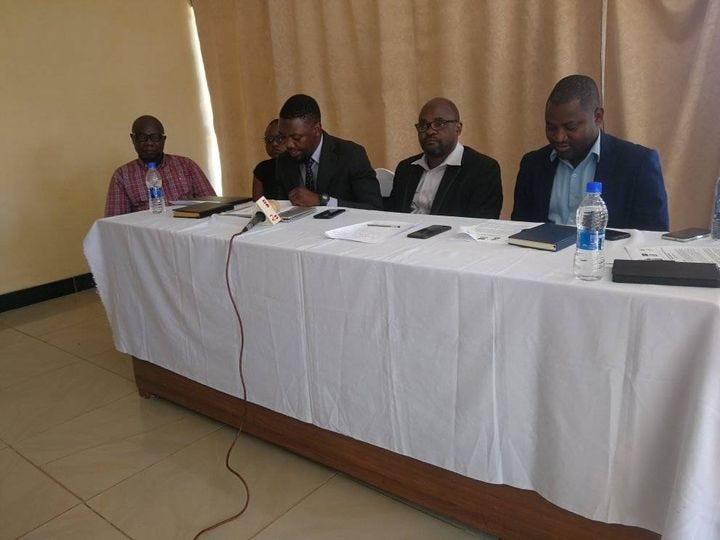Idle Promises in Lilongwe: CSOs Demand Public Sector Reforms Report Implementation
The Chakwera administration, which took power in 2020's hotly contested election, had promised to clean up such graft and inefficiency.
MZUZU, Malawi-Malawian civil society is up in arms over the government's handling of a public-sector reform report, writes Winston Mwale.
A coalition of 14 NGOs, including heavyweights like the Catholic Commission for Justice and Peace and the Human Rights Defenders Coalition, has today issued an ultimatum to the administration of President Lazarus Chakwera: publicly release the report led by Vice-President Saulos Chilima within seven days and convene a national summit to discuss its recommendations within 60 days.
The report in question, completed in February 2021 by a Special Taskforce which was chaired by Vice President Saulos Chilima, reviewed Malawi's systems for allowances, procurement and employment contracts in the public sector.
Its recommendations seek to tame some of the worst byproducts of the country's patronage politics, such as inflated allowances for government officials and a bloated, unmotivated civil service.
The Chakwera administration, which took power in 2020's hotly contested election, had promised to clean up such graft and inefficiency.
Yet nearly 18 months after the report was submitted, there is little evidence of its implementation.
At a press conference in the northern city of Mzuzu, the NGO representatives accused the government of sitting on the report and lacking transparency.
Charles Kajoloweka, leader of the grouping, demanded the president "confirm the report in seven days and tell Malawians how it is being implemented."
He also insisted the finance minister present the full report to parliament for debate.
Willy Kambwandira of the Church and Society Action Trust, part of the coalition, lamented the wasteful spending on a report now gathering dust.
"How do we track if the country is making progress when the report is being hidden?" he asked rhetorically.
Public-sector reform was a key tenet of the Tonse Philosophy, the liberal, anti-corruption platform on which Chakwera and nine other parties united to win the controversial 2020 polls.
The new president staked his reputation on rooting out the nation's entrenched kleptocratic networks.
That the flagship reform report appears stuck in limbo suggests either bureaucratic inertia or a lack of real commitment to the promise of change.
Malawian voters who bought into the Tonse vision will be disheartened.
With public frustration building, Chakwera may need to break the stalemate soon to avoid a civic backlash.




